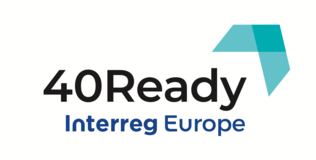Based on the data of the performed analyze “The analysis of the 2014–2020 programming period ESF financed projects for small, medium sized enterprises employees’ competencies”, carried out during the implementation of the 40Ready project, and project partners experience new call for measure “Human Resources Invest LT +” was organized. The overall policy need to be addressed by this call is to test and adapt funding measures to support training a workforce that can quickly and efficiently adapt to necessary changes.
The European Social Fund Agency (ESFA) has completed the evaluation of applications for the measure “Human Resources Invest LT +”. The measure aims to promote foreign direct investment by improving the qualifications, knowledge and skills of investors' employees.
Under the measure, the ESF received 10 applications, 5 of which were positively assessed and submitted to the Ministry of Economy and Innovation for a funding decision. The amount requested in the positively evaluated applications for the implementation of projects is more than 626.000 Euros.
This measure supports the training and professional development of employees of foreign investors investing in production and / or services in Lithuania, including the organization of on-the-job training. The maximum amount of funding available for the project was 150.000 Euros, the minimum - 10.000 Euros.
According to Renata Ribinskaitė, Project Evaluation Coordinator of the ESFA Project Management Division, one of the priority evaluation criteria, provided in the description of the financing conditions of the measure, was to encourage manufacturing companies to train employees through apprenticeships in cooperation with vocational training institutions. Companies chose to provide training for their employees through an apprenticeship in 3 positively evaluated applications. Selected training programs - modular vocational training program for electrical equipment assembler, training for engineering electricians, modular training for tailor-operator, training for quality controllers, etc.
Apprenticeship is the most effective form of vocational training, it meets the needs of the labor market and the expectations of employers. As the analysis has shown the implementation of the apprenticeship concept in Lithuania is still relatively slow. One of the main reasons for this is the relatively slow involvement and participation of employers in apprenticeship programs. Most SME of the industrial sector do not have the knowledge and resources to carry out apprenticeship activities on their own, and vocational training institutions often do not train professionals with specific competencies to create added value immediately upon entering the labor market, without having to be taught how to work with complex and specific equipment. The implementation of the projects of this call is expected to foster cooperation between industry and vocational schools.
In response to the challenges posed by Industry 4.0, the measure has also encouraged companies to train and retrain low-skilled workers. The aim is to help low-skilled workers adapt to a modern working environment and to enable them to develop and acquire competencies in the engineering industry. It is a very good pilot action that could be extended in the future.
According to the evaluated applications, the projects are planned to be implemented in Panevėžys (2), Kaunas (1), Šiauliai (1) and Marijampolė (1) districts.












